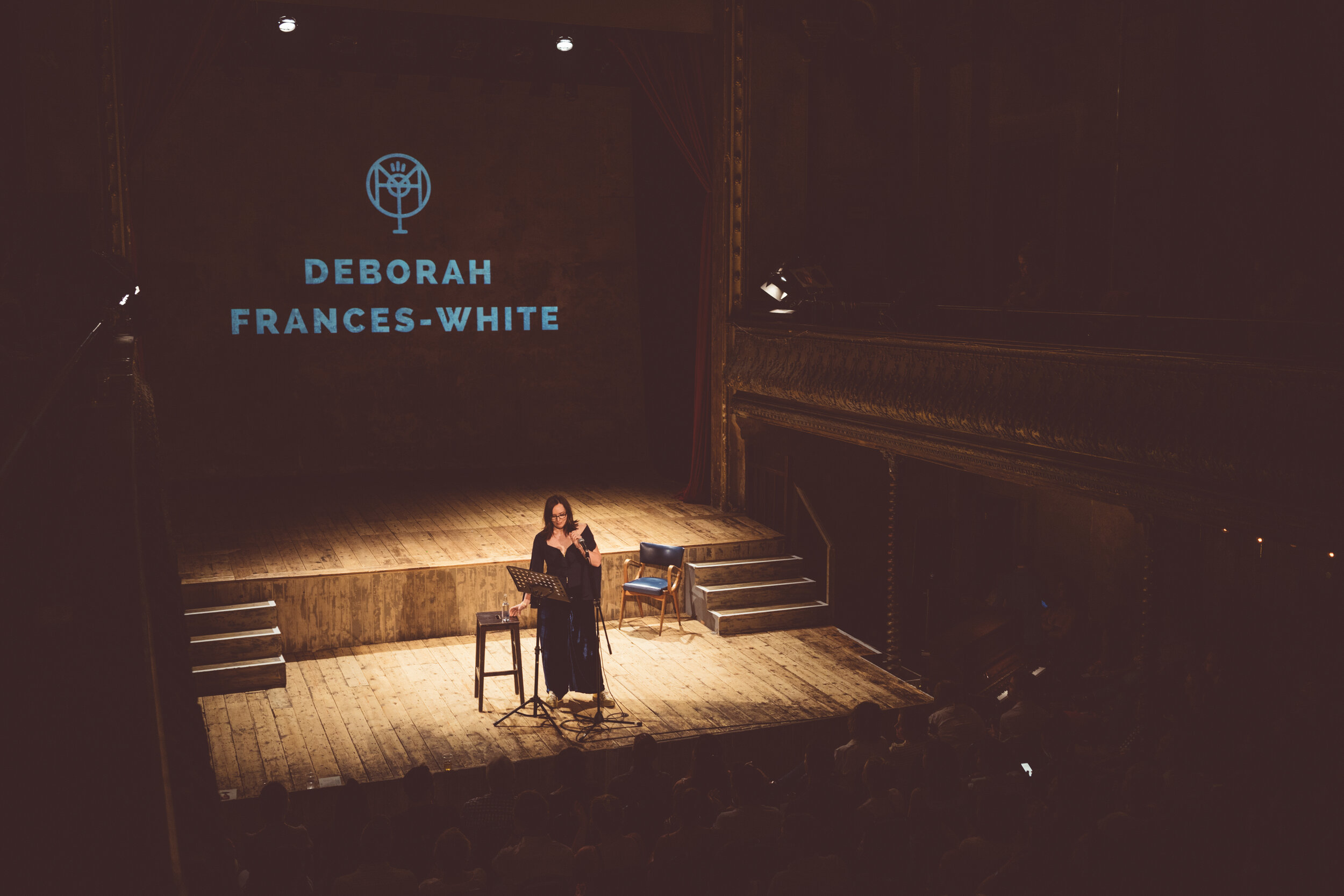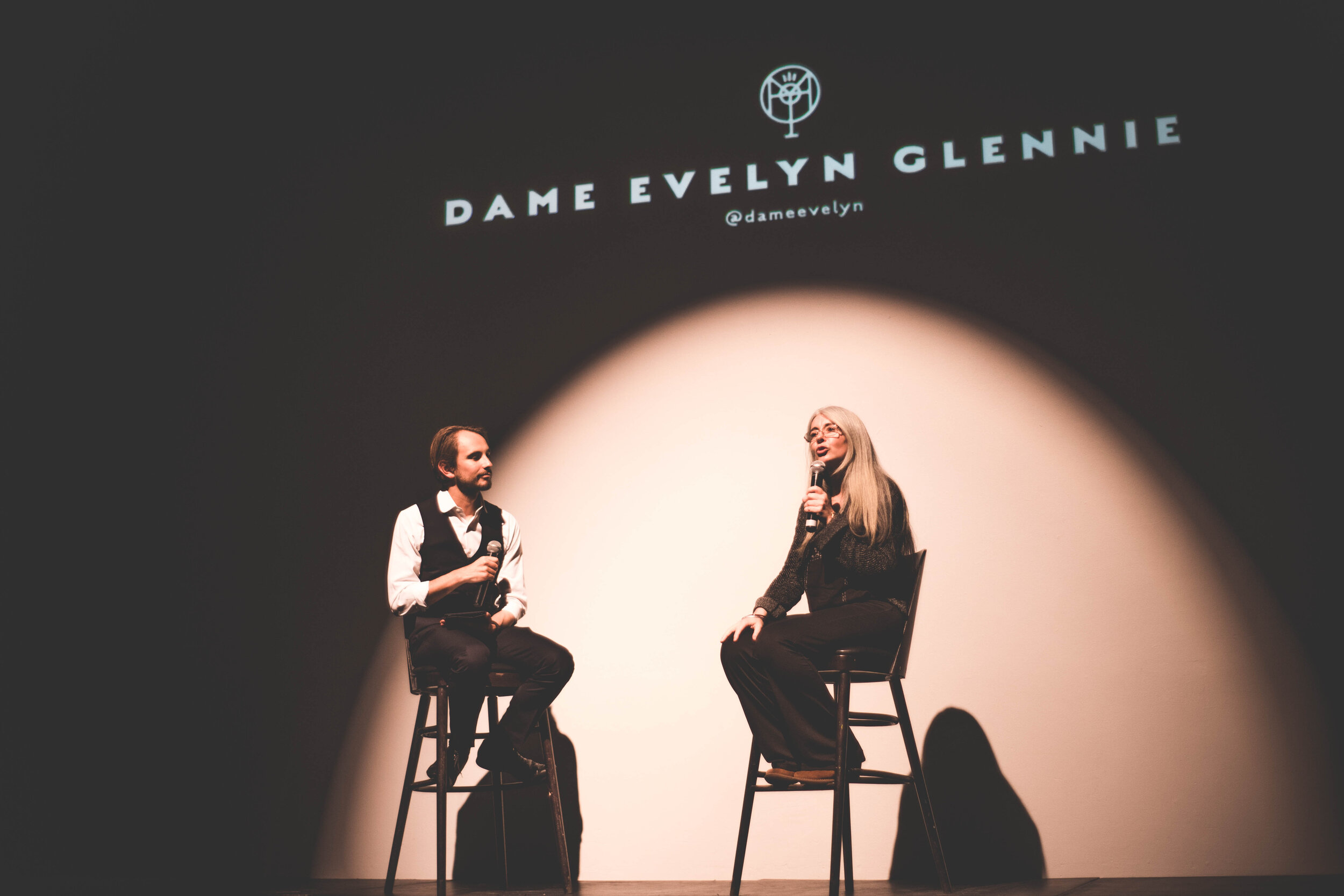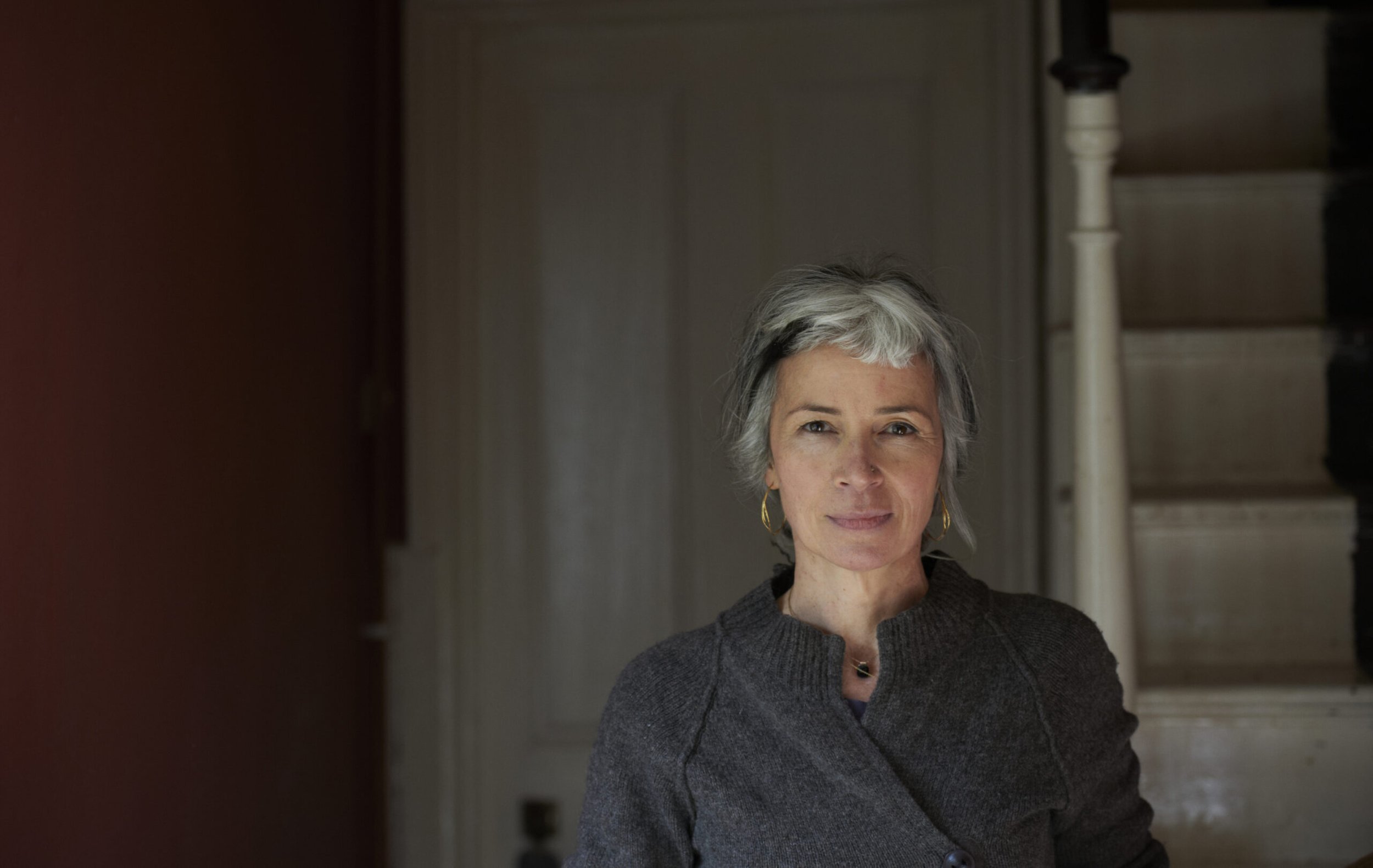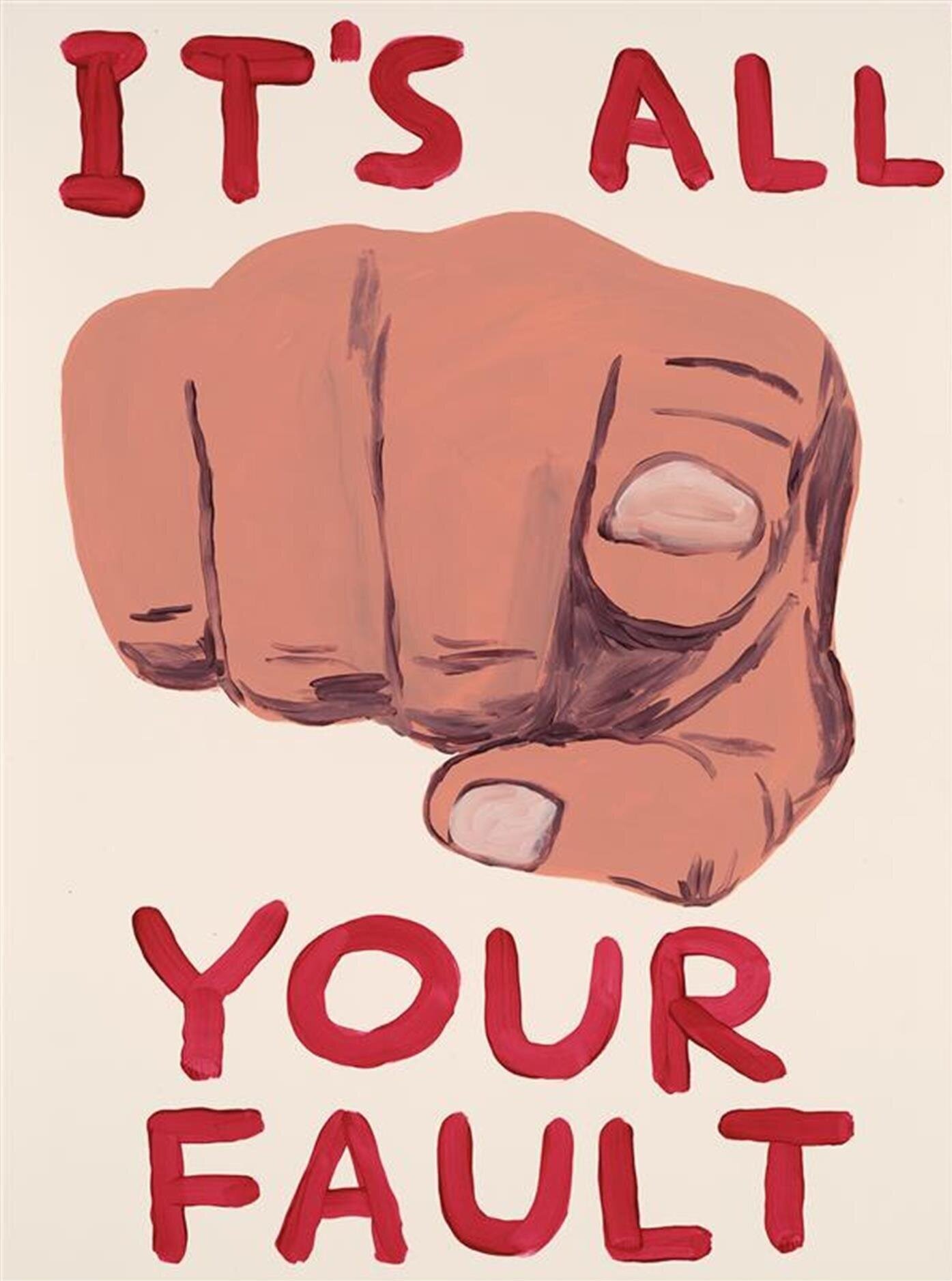One Track Minds: An Original Interview
Image: Louise RobertsInterview by Jimmy SandisonOne Track Minds is a storytelling show. A live storytelling show, described as a cross between Desert Island Discs, Ted Talks, and The Moth. Kristian Brodie and Adam Shakinovsky ask six people to tell a story about one song that has, in some way, changed their life.
Ahead of the launch of the first ever published Anthology of One Track Minds, we speak to Kristian and Adam about their ideas, universal truths and the effect of COVID on the events industry.
SomeGoodIdeas: Kristian, where did the idea for One Track Minds come from and how did it take shape?
Kristian: A few years ago, I spent a period of time in Sweden with my wife, while we ate dinner each night, we would put a podcast on. We basically listened to the entire back catalogue of Desert Island Discs.
The two things I found were, firstly, how often there would be somebody on the show who I thought I didn’t like, for one reason or another, and by the end, I had completely changed my mind about them. The second thing was, how often people would put on the song, and then would be moved to tears by the memory that it brought.
Sharing music is a powerful way of allowing empathy and insight into somebody’s life. It’s a catalyst for that connection.
So, when I came back from Sweden, my initial idea was to have some friends around for dinner, and they would bring with them a song, and over the course of the dinner, we’d play everybody’s song, and they would introduce it and explain why they chose it.
“Sharing music is a powerful way of allowing empathy and insight into somebody's life. It's a catalyst for that connection.”
Kristian BrodieI was talking to a friend about it, (this was in January 2016), he said that it sounded like a great idea, but that I needed to do it in front of an audience. He’d got an email that morning from Holly Kendrick, who runs Wilton’s Music Hall. Holly had emailed to say that -for one reason or another- they had a programming issue, and they didn’t have enough shows for the spring season.
He introduced us, I explained to her what I thought the event could look like and she said, “Yeah, this sounds brilliant. Do you want two nights in May?”
Those first few shows we got about 120 people per night.
Our first ever guest we had on the show was a brilliant performance poet called Jemima Foxtrot. The song she chose was a cover version of the song ‘Sunshine of Your Love’ by Cream. It was Spanky Wilson’s version of that song.
And then, we didn’t realise this when we booked the show, but the next guest who came on was this poet called Pete Brown. And Pete Brown wrote the lyrics to Sunshine of Your Love. That was a good sign. We thought, “there’s something right about this”.
We had a lot of fun, everybody responded to the brief in a totally different way, but in a really enjoyable and engaging way.
By the following year, we had ended up very much embedded at Wilton’s and our audience grew.
SGI: Is there a consistent truth in people’s answers to how a song has changed their life?
Adam: Out of more than 200 stories, if there is one consistent truth it seems to be that we all want to belong and be accepted for who we are.
Kristian: That’s a really good question. An answer in a slightly roundabout way is that a lot of the time when we ask people the question, people fit into two groups. One group of people come back immediately and say, “yes, I’ll do the show. And yes, I know what my song is”, within 30 seconds.
The other group, is of people who say, “that sounds interesting, I have no idea what my song would be. Also, I don’t think a song can change your life”.
“If there is one consistent truth it seems to be that we all want to belong and be accepted for who we are.”
Adam ShakinovskyKristian: We always say that it’s a story about ‘a’ song that changed your life because I don’t know if one song will ever change your life. It can be just a moment in your life that has been affected as a result. It could be a tiny, tiny little thing. But yeah, is there a universal theme? That’s a really good question. I’d love to think about that.
SGI: The first ever One Track Minds Anthology is coming out soon, how difficult was it to translate people’s stories onto paper. Did the stories change at all after writing them down?
Kristian: Over the five years of One Track Minds, we’ve had over 200 different stories and there can only be 25 in this first book. So, we’ve tried to choose stories that will work well in written format.
Adam: Some of the stories with more performative elements have needed to adapt to the medium. For instance, a doctor inserting a finger into a surprised rectum and the ensuing noise, while easily conveyed onstage, needs to be presented differently for our readers to still enjoy the unexpected nature of that moment.
Kristian: The way in which you tell a story depends on who’s listening and how they are consuming that information. I really enjoyed learning about that. Not just the storytelling process, but how to reach the audience.
SGI: So, a COVID question…what do you think is going to happen to live music and the event industry?
Kristian: It’s a tough one to know.
We have had to cancel everything we had planned this year, which has been heartbreaking. We had about 10 live shows, including festivals. Our Spring run was totally wiped out just at the beginning of lockdown.
Gratefully, we’ve got three dates booked in at Wilton’s Music Hall for next year, in January, February and March. We’ve agreed that the audience will be massively reduced, Wilton’s capacity is 350 people, but we will take a maximum of 107.
Ordinarily, we’d have no problem selling 107 tickets, but who knows. Will people want to come together to sit in that in that sort of space? It’s going to be really interesting.
“Once we’re all vaccinated, I think events normality will return pretty quickly. Humans have a proven inbuilt ability to forget pain and to embrace joy.”
Adam ShakinovskyKristian: That limited capacity has its impact on the financial viability of the show. We would normally take a split off the box office but suddenly, we go from 350 to 107. And we get 60% of that and then minus fees, we’re not going to make any money, we might well lose money, especially if we don’t end up selling all 107 tickets. And it doesn’t just affect us, it’s also affecting Wilton’s, they’d usually be reliant on those ticket sales and then people being able to stick around and have a drink in the bar afterwards.
I work in the film industry and we’ve just heard that all these Cineworld and Picture House cinemas are closing, and they’re not going to open again until there’s a supply of film. It’s had horrible impacts on the entertainment industry altogether. I think the government really needs to do something about that.
There’s a sense that the government don’t really have any respect for the arts at all. And that is scary. Everybody’s struggling at the moment.
I’ll just keep petitioning and hoping that somebody pays attention. Because it’s a really difficult time now.
SGI: And in the aftermath of COVID? Do you see a positive future?
Adam: Once we’re all vaccinated, I think events normality will return pretty quickly. Humans have a proven inbuilt ability to forget pain and to embrace joy.
The world was once gripped by smallpox, the bubonic plague, world war etc where people were afraid to be near each other or leave their homes. As Shakespeare says, ’the worst returns to laughter’. As for the music industry, I hope that music events also go through the roof so people can once again enjoy thrashing around together in a pub/stadium singing their unmasked hearts out.
SGI: How do you balance One Track Minds, alongside all the troubles COVID has thrown at it, with your normal day job?
Kristian: It’s funny, it’s one of those things that I found to be almost counterintuitive. Last year, I was entirely freelance and working on the show. Then I started my current, full time job in November and thanks to having a day job where I have a salary, it’s been much calmer.
It’s been much more focused, as opposed to this sort of frantic “how are we going to make money from this?”.
Adam: It helps that we’re partners and we’re getting better and better at focusing and sharing the load. I think we’ve both felt overwhelmed at points during this whole thing. Fortunately, as always, we’ve been able to be there for each other, help each other back up and keep focused on the work. Saving time on the commute also helps. It adds about 3 hours back into my day which slightly offsets the extra work.
Kristian: It’s a lovely thing to be able to say that both my job and One Track Minds are passion projects; I love film, I love working in the film industry. And so, working long hours or working weekends, whatever, it’s doesn’t feel the same, it’s not ‘work’ as such. It’s a much more enjoyable process. I think that’s a way of balancing these things out. It’s embracing the passions.
SGI: Finally, do you have any good music recommendations?
Kristian: Okay. Yes. What are the two things that I’ve been really into this week? A new album that came out just last week by Fleet Foxes called Shore. It reminds me of being somewhere other than wet, autumnal England. It’s really lovely.
And then the other one is an album by British jazz musician, Nubya Garcia, called Source. I’m a really big jazz fan. We’ve not had enough jazz on One Track Minds for my liking.
Adam: For reasons of my children calling out random songs to Alexa I can recommend dancing around like a crazed chicken to Arma Van Buuren’s ‘Blah Blah Blah’. Also, enjoy The Lego Movie 2 soundtrack (in particular “Not Evil” and “Gotham City Guys). A chirpy songbird favourite is definitely “I love the Mountains” by Houaida.
SGI: Thank you, Adam and Kristian!























